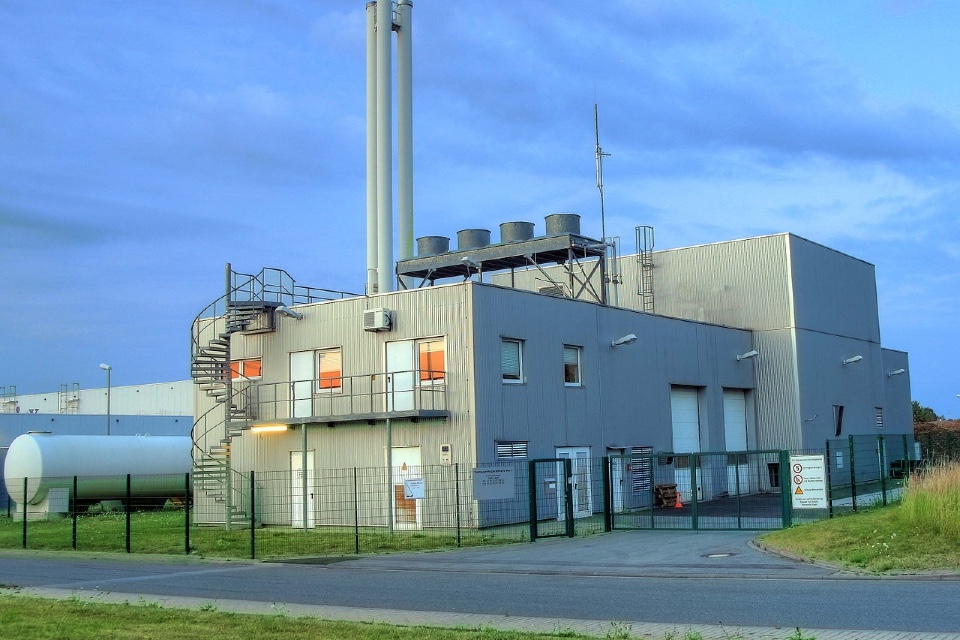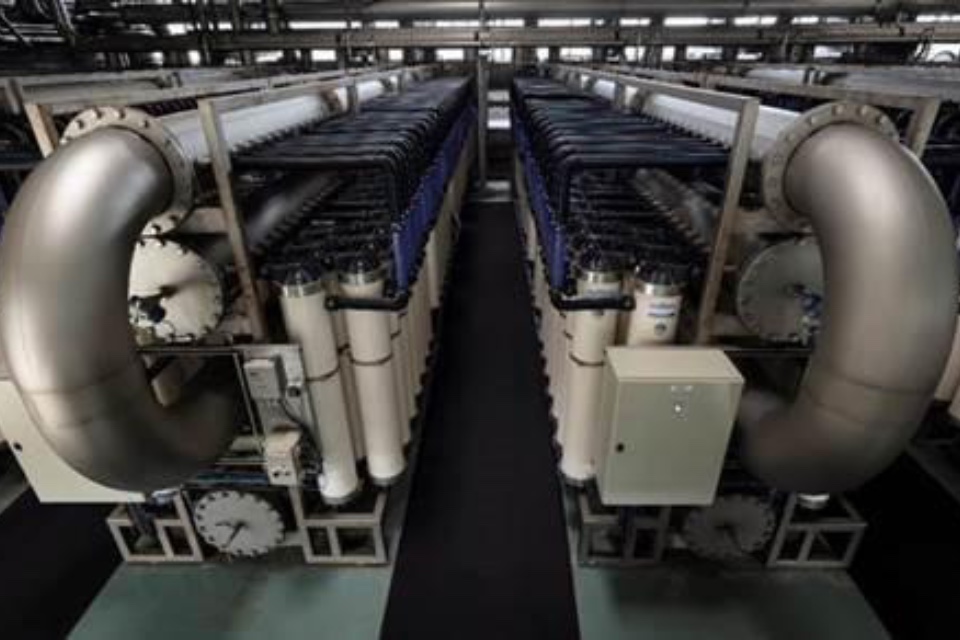Six pioneering nature projects across England have received major funding award to trial the most effective ways to capture carbon and mitigate the impacts of climate change.
Nature Based Solutions for Climate Change at the Landscape Scale is a partnership led by Natural England with the Environment Agency, the Forestry Commission and Royal Botanic Gardens Kew at Wakehurst, Kew’s wild botanic garden in Sussex.
Operating at a landscape scale of over 500 hectares each, the six projects will restore landscapes across England – from Plymouth to Northumberland – and assess how carbon is captured and stored across different habitats such as grasslands, forests, wetlands and hedgerows.
The £4.3 million of funding will support:
- Wild Exmoor Carbon Sequestration Project: The National Trust has been awarded almost £1 million to deliver targeted nature-based solutions and carbon capture across its 670-hectare Watersmeet estate. The charity will create a wetter and wilder landscape by restoring and protecting coastal woodland, heathland habitats, species rich grassland and wood pasture.
- Wansbeck Restoration for Climate Change (WRCC): Almost £600,000 has been awarded to the project managed by Groundwork NE & Cumbria which will assess how nature-based solutions can thrive in a farmed landscape. The project will restore mixed habitats – grasslands, peaty pockets and woodlands – and demonstrate how landowners can work together to reduce greenhouse gas emissions and promote carbon sequestration. Working across 10 sites, the work will restore over 144 hectares and will contribute to the wider restoration of the River Wansbeck catchment in Northumberland.
- Plymouth’s Natural Grid Nature Based Solutions for Climate Change at the Landscape Scale project: Approximately £1 million will support Plymouth City Council, working in collaboration with the National Trust, to restore natural habitats and create local solutions to climate change in the urban environment through wood pasture, species rich grassland and woodland creation, salt marsh restoration and floodplain mosaic habitat creation.
- Derwent Forest Landscape Recovery Project, part of the Derwent Connections Programme: Derbyshire Wildlife Trust has been awarded £645,000 for its Derwent Forest Landscape Recovery partnership-led pilot project. This project aims to create connected woody habitats between the Northern and National Forests to allow movement of species in response to climate change. It will also develop an economically viable programme to support landowners to create and expand dynamic and resilient ecosystems.
- The Oxfordshire–Buckinghamshire Freshwater Network: This programme, run by the Freshwater Habitats Trust, has been awarded over £780,000 to focus on the role played by smaller, peat-dominated wetlands, floodplains, wet grasslands and waters in sequestering carbon in the landscape. These habitats are of exceptional importance for freshwater biodiversity, which is in rapid decline. The project will help to better understand the role that these habitats can play in carbon sequestration. It will also help Freshwater Habitats Trust build the Freshwater Network – a national network of wilder, wetter, cleaner and connected freshwaters.
- Severn Solutions for Nature’s Recovery (SSNR): Gloucestershire Wildlife Trust has been awarded over £417,000 to work with Hasfield Court Estate to restore a 500-hectare estate in the Severn Vale. The partnership’s vision is to demonstrate and provide evidence of how the restoration of native habitats can provide nature-based solutions that help adapt to climate change and tackle the ecological emergency. Following a baseline survey of the estate, options have been tailored to maximise landscape connectivity between existing priority habitats, and will involve the creation of wood pasture, traditional orchards and species rich grassland. These actions will create habitats for important pollinator species, nesting opportunities for farmland birds and foraging networks for protected bat species.
Tony Juniper, Chair of Natural England said: “Many of the solutions to climate change are all around us in the natural world. From trees, hedges and grasslands that absorb carbon from the air to the peat-rich soils that hold it in the ground, there are huge opportunities to catch carbon while achieving other benefits at the same time, including increasing our ability to adapt to climate change impacts. The simple fact is that when it comes to our net zero ambitions Nature is our biggest ally and more we can do to restore it the better.
“Getting the scale of benefits we need requires working together collaboratively across entire landscapes. This is only going to be possible if we forge broad partnerships and this is increasingly the case as different sectors see that they are all part of the solution to the climate and Nature challenges that the world and this country are setting out to meet.”
Alan Lovell, Chair of the Environment Agency, said: “In the face of increasing climate extremes, using nature-based solutions that restore and work with natural processes is a powerful tool that can help protect us from the devastating impact of drought, floods and wildfires.
“The collective ambition to restore nature at a landscape scale, alongside the right financial incentives, will create a more resilient approach which is needed to address the urgent challenges of nature loss and climate change.”
Richard Stanford, Chief Executive at the Forestry Commission, said: “Resilient forests, woods and trees are vital for capturing carbon in the fight against climate change and improving biodiversity to aid nature recovery.
“We are working with project partners on the creation and management of woodlands across these landscapes to help treble tree planting to 7,500 hectares per year by the end of this parliament with a goal of reaching 16.5% tree cover by 2050.
“Through this programme we will gain new insights into the factors that affect how trees capture carbon, over the short and long term, in a variety of different habitats and sites. This will build on the excellent work by Forest Research and other organisations on the subject.”
Ed Ikin, Director of Wakehurst, Kew’s wild botanic garden said: “We at Kew are delighted to be part of this transformative landscape research investment.
“We hope our innovative research at Wakehurst will provide vital and valuable data for both the government and our new partner sites, offering essential scientific evidence for the ability of biodiverse landscapes to sequester carbon above and belowground to benefit people and the economy.”
Nature-based solutions – which tackle societal challenges in ways that benefit both people and nature – can remove CO2 from the atmosphere and halt emissions from degraded natural sites and agricultural land. Testing the effectiveness of different landscapes in acting as carbon sinks will be crucial in meeting the UK’s climate goals.
Analysis and information from the pilot sites will be used to better inform habitat creation and contribute to tackling climate change. Each project will also look how best to blend public and private sources of funding to support further delivery of their landscape-scale plans for improving the natural environment.
The partner organisations will work alongside project partners to expand scientific evidence on greenhouse gas emissions, create sustainable funding opportunities for landscape scale projects, and provide additional data to inform the development of robust carbon standards, such as the Woodland Carbon Code and the Peatland Code.
The Nature Based Solutions for Climate Change Programme is a £12.5 million programme first established in 2021 which is funded by the Treasury’s Shared Outcomes Fund, and cosponsored by Defra and the Department for Energy Security and Net Zero. The fund seeks to increase cross-government collaboration and address society’s most challenging problems including biodiversity loss, climate change and land use change.
In addition to establishing the partner sites, the funding is enabling Natural England, the Environment Agency, the Forestry Commission and Kew to undertake further scientific research into the value of nature-based solutions and green finance models.
Researchers at Kew’s wild botanic garden, Wakehurst will research the value of broadleaf, coppiced and coniferous woodlands in building resilience to climate change. Using drones, they will measure plant biomass alongside greenhouse gas flux, and undertake soil fungal research to consider how different biodiverse habitats sequester carbon.
Natural England scientists are also assessing carbon and biodiversity both on the new habitats and assessing the carbon and biodiversity benefits of earlier habitat creation and restoration projects.
The Programme will run until March 2024.











